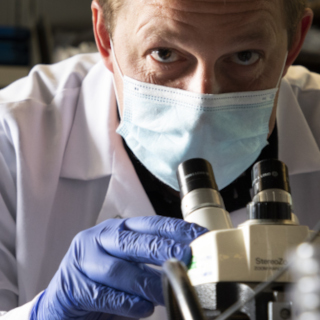University Grant Program
The Office of Research and Creative Scholarship has awarded a total of 24 grants through the 2024 cycle of the University Grant Program. Congratulations to this year's cohort of awardees! You can view a list of recipients and their project abstracts on the UGP Awardees page.
Overview
The 2024 deadline for UGP proposals has passed. The next anticipated deadline is February 2025.
Funded by the Office of Research and Creative Scholarship (ORCS), the UGP is intended to foster innovative research and creative accomplishments. Unless otherwise specified, funds may be requested by faculty in any area of research or creative work. Successful proposals may be funded at less than the amount requested. This year’s UGP grants include the following.
- Small Grants (10-15 awards totaling $50,000)
- Seed Grants (3-4 awards totaling $50,000)
- Career Enhancement Grants (8-10 awards totaling $50,000)
- Global Research Program (GRP) (8-10 awards totaling $50,000)
For full detail on each of these programs, follow their respective links. There you will find details including examples of eligible requests and additional information regarding eligibility for each.
How to Apply
The 2024 deadline for UGP proposals has passed. The next anticipated deadline is February 2025.
For information on how to prepare and submit an application, see How to Apply.
Additionally, the recording of a UGP information session is available in Box. If you need additional assistance, please reach out to Naomi DeMarinis. Naomi is availble to assist with proposal development by answering your questions, discussing strategy, and reviewing a draft of your proposal.
Important dates
The 2024 deadline for UGP proposals has passed. The next anticipated deadline is February 2025.
Project Start Date Range for 2024 awards: May 1 - June 30, 2024
Project End Date Range for 2024 awards: April 30 - June 29, 2025
More Funding Options
Whether or not you decide to apply to the University Grant Program, you may want to consider other internal sources of funding to support your work.
- Humanities Research Grants. Administered by the Humanities Institute and funded by ORCS, these research grants support the pursuit of humanities research and promote humanities scholarship. Because they are funded by the same source, faculty can hold either a Humanities Research Grant or a UGP award at any given time.
- Coalition for Indigenous STEM (CIS) grants. Through funding from the Howard Hughes Medical Institute, there is funding available to support work with indigenous peoples. The four opportunities available are described below. For more information, contact Kristen Byrne (CIS Project Manager) and Aaron Thomas (CIS Lead PI).
- Mini grants: mini grants will be provided for faculty/staff to visit tribal communities to start new collaborations. The CIS project could also find a mentor for faculty/staff awarded mini grant to visit tribal communities. CIS budgeted funding for travel and compensation for mentors.
- Tribal Hometown Visits: The CIS project provides funding to support non-Indigenous academic faculty advisor to visit their Indigenous graduate student’s hometown, with the intention being that such an experience will enhance their holistic understanding of the Indigenous graduate advisee in cultural contexts and create more productive and meaningful professional relationships. Details and application portal can be found here.
- Indigenous Mentoring Program: Each fall semester, the Office of Organizational Learning and Development's (OOLD) professional development series offers the Indigenous Mentoring Program (IMP). This two-part workshop series is available to faculty, graduate students, administrators, and staff who currently mentor, or are interested in mentoring, Indigenous students. CIS project is funding the guest speakers for IMP. Details about IMP and registrations can be found here.
- Tribal Community Retreat: The CIS project is offering a two-day retreat in which faculty, staff, and administrators will visit a Montana Reservation and gain valuable local knowledge. Tribal members will present their views on STEM education and community issues. These workshops will provide UM participants with connection to the Tribal Colleges and Universities in Montana and further understanding of their mission for Indigenous students while creating opportunities for collaboration. Note participants of this event must first complete the Indigenous Mentoring Program. Details and application portal can be found here.
- If you would like to seek external funding, you may visit our funding search tool, Funding Institutional. If you need help getting logged in, contact Katherine Swan.
